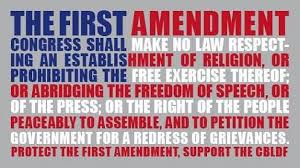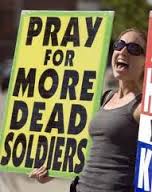 You don’t have a right to freedom of speech.
You don’t have a right to freedom of speech.
Obviously true if you’re Malaysian, but even Americans only enjoy a liberty in freedom of speech and not an absolute right.
The difference is clear, liberties are protections you have from the government, while rights are something you have from everyone.
So if someone threatened your right to live, the government is obligated to intervene and protect that right, because your right to live is a protection you have from everyone, whether it be a common criminal, abusive husband or Ayotollah Khomeini.
On the other hand you only have a liberty in freedom of speech (at least in an American context), which means that the government can’t prevent you from speaking, or penalize you for something you said.
However, the government is under no obligation to ensure your speech gets equal ‘air-time’, a newspaper may decline to publish your article, an auditorium may elect to deny you their roster, and online platforms like Facebook may choose to remove your post–all of which do not violate your freedom of speech, because freedom of speech is protection only from the government (state actors) and not from private entities.
And like all liberties and rights, freedom speech is not absolute. Under strict conditions even the US government can impose limits to what they’re citizens can say, or penalize them for things they have said.
In the case of freedom of speech, a liberty defined in their first amendment, those strict conditions are very strict indeed. In order for the government to infringe on the freedom of speech, it must demonstrate a imminent danger that will result in a serious effect.
In other words the government must be able to prove that if the speech were given freedom, there would be an imminent threat of something serious. Both the imminence and seriousness must be proven, failing which the government cannot infringe on that speech. This is indeed a very tall hurdle to climb, and based on my cursory research no case has ever reached this limit.
To see how high the bar is set, let’s consider cases that haven’t met this limit, including the recent case of Synder vs. Phelps.
In that case, members of the Westboro Baptist Church decided to protest outside the funeral of a dead American soldier, with placards that included the statements such as “You’re going to hell” and “God Hates you”. The father of the soldier, who was  understandably upset decided to sue the Church and its pastor.
understandably upset decided to sue the Church and its pastor.
The case went all the way to the US Supreme court, where in an 8-1 majority decision concluded that “What Westboro said, in the whole context of how and where it chose to say it, is entitled to ‘special protection’ under the First Amendment and that protection cannot be overcome by a jury finding that the picketing was outrageous”.
Freedom of speech is theoretically not absolute, but the bar is set high enough for you to picket outside a funeral with the words “You’re going to hell”, meaning it can be considered practically absolute in most cases.
Which brings us to Hate Speech online, the reason Facebook, Google and Twitter ban hate speech on their platforms, is not that it violates US Law (it is comfortably protected by US Law), but rather because it violates their own terms of service.
The definition of Hate speech online is found not in the laws of countries, or even from court judgements. Rather it’s found in a terms of service document written up by the lawyers an American private entity, and most attempts to regulate speech in these platforms above and beyond those terms of service have failed miserably.
From a Malaysian perspectives, we sometimes rejoice that Facebook doesn’t share the wide definition of offensive and seditious content that our government uses. Our freedom of expression is more protected online than on the streets of Malaysia.
But some detractors are unhappy that Facebook has blocked Tun Dr. M’s website, with no solid reason. And when you’re a company that is mostly male and predominantly white, you’re bound to end up with some problematic ‘bias’, including the time when Facebook started banning pictures of breastfeeding women because it was deemed ‘offensive nudity’.
While the internet was built to be a decentralized network, away from the control of any one government, we’re beginning to see ‘pockets of central authority’ in the form of large multinational company, who hold more power than most countries.
If you had a blog, but Facebook didn’t allow links to it, and Google never displayed it on search results, and twitter censored it–how much traffic could your blog ever get? The internet is beyond the control of most governments, but it’s true power lies in a handful of mostly American companies.
So while, I’m happy that Twitter, Medium, Facebook and Google have each quite successfully the strong-arm tactics of the Malaysian government, the alternative world we live in isn’t perfect, and there will come a time when these corporations may wield too much power.